Reported by: Tran Le Thanh Hien
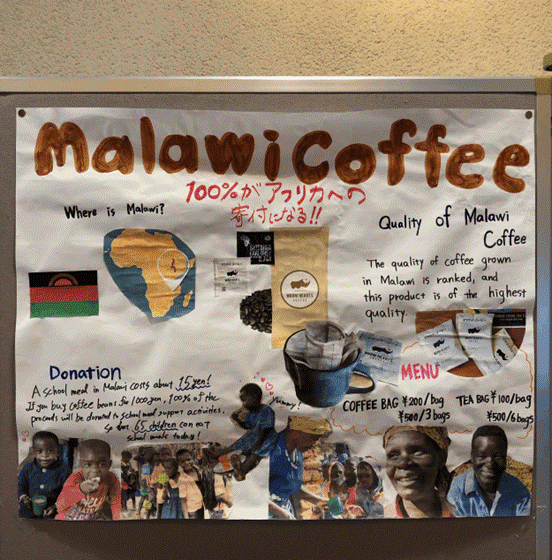
The students created the poster to support a charitable cause.
Over the past three days, July 2, 3, and 4, the “Female Business Leadership” class at Osaka Jogakuin University conducted a small project titled “Selling Malawi Coffee.” This initiative not only deepened students’ understanding of business principles and leadership but also promoted support for meals for children in Malawi through the NPO Seibo.
Preparation and Planning:
The students began the project by researching the NPO Seibo and its mission to support children in Malawi. They collaborated with Seibo to secure tea and coffee and crafted a comprehensive project plan. Preparation involved studying the situation in Malawi, exploring issues related to women in the workforce, equity, education, and creating marketing materials to effectively convey the project’s purpose to the university community. The team held initial meetings to assign roles in marketing, sales, and logistics, and addressed potential challenges such as ensuring product availability and efficiently managing the stall.
The students set up a stall before lunch started. They also created a video to educate others about the situation in Malawi.
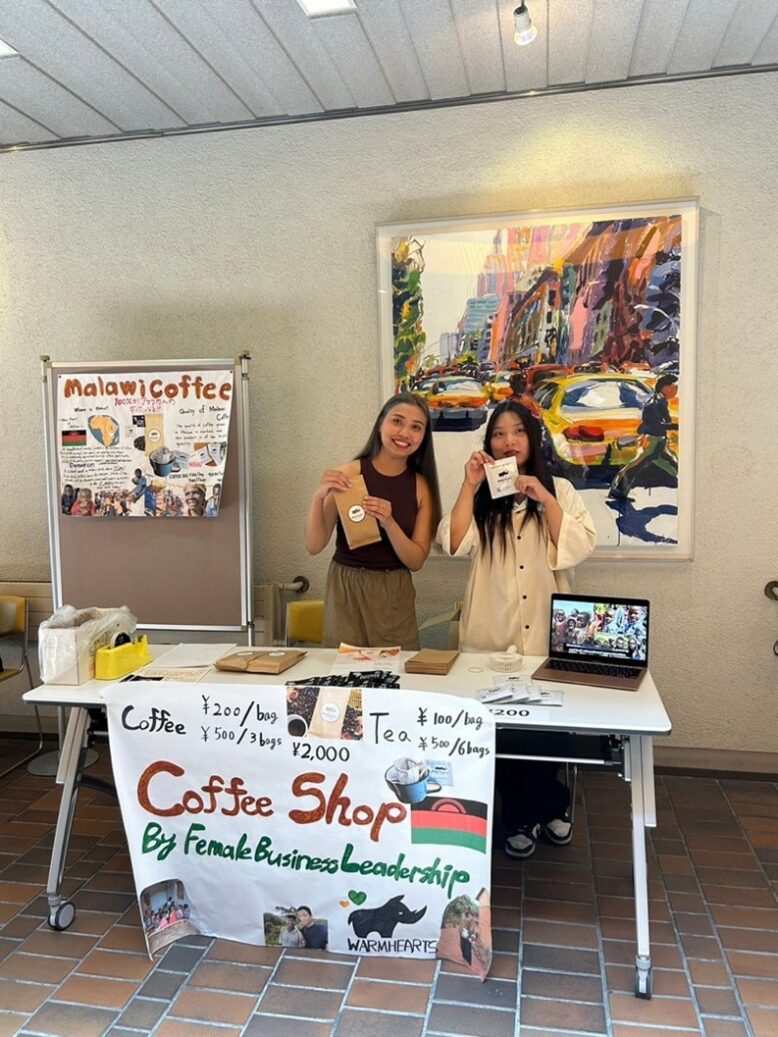
Execution:
The students set up a stall at the school’s entrance, strategically positioning it to attract maximum foot traffic. They worked in shifts to manage the stall during the brief 40-minute lunch periods each day, ensuring continuous coverage and efficiency. Their efforts included engaging with customers, explaining the cause, and handling sales transactions. To enhance the stall’s appeal, the team made sure it was visually attractive and welcoming, using clear signage and well-designed promotional materials. Students shared information about the project and the positive impact of each purchase, creating a personal connection with customers. They also offered samples to entice passersby and used social media to spread awareness and attract more visitors. The collaborative spirit and enthusiasm of the students were evident as they worked together to make the stall a success, balancing their responsibilities and supporting each other throughout the project.
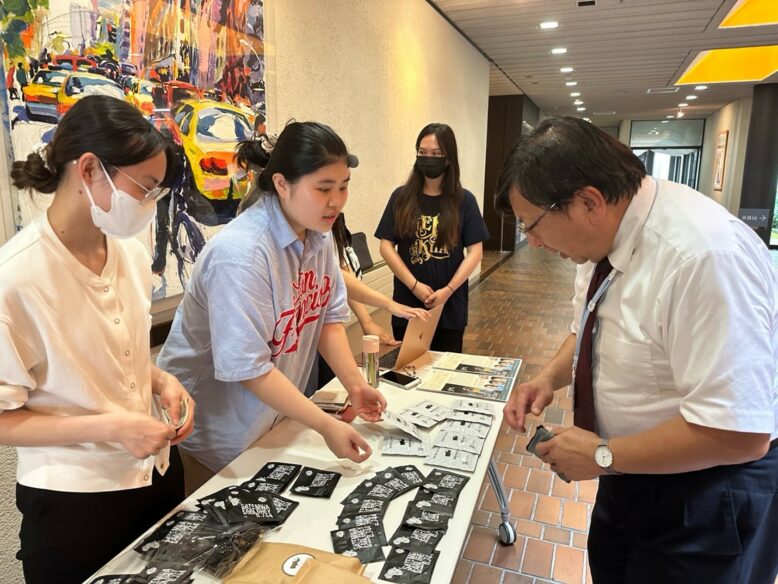
Having a thorough understanding of your products is crucial.
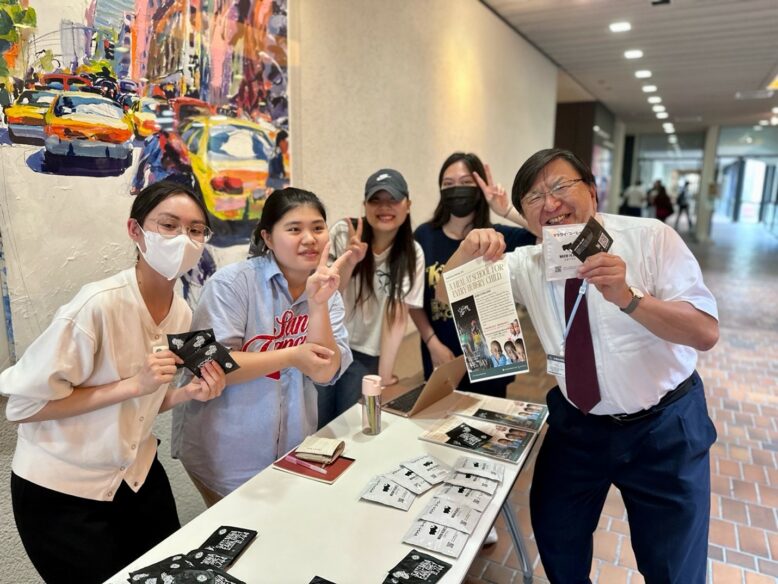
A flyer was created by students who actually interviewed people in Malawi.
Challenges and Reflections:
This is the first time the students have participated in a project like this so of course they faced certain challenges.
Hai Yen, one of the student participants as a leader, shared her thoughts on the project implementation process: “I am really satisfied with the way everyone worked. Each working group may have faced its own challenges, but overall, all groups completed their tasks with a high sense of responsibility. What I found difficult was communication and information transfer. Due to the language difference and partly because we used English, it was sometimes difficult to express what I wanted to say and for others to understand my opinion. One of the problems we encountered on the first day of opening was that because we couldn’t agree on a meeting place, the preparation was a bit chaotic and we didn’t make it in time for the opening, but I’m glad everything went smoothly. I also felt very happy and pleased that the project went well.”
Huyen, another student participant, recalled the project and said: “after seeing me shared about the project on social media platforms, many friends in Viet Nam and other countries felt very proud. Thanks to the Seibo organization, I was able to share with them what l learned and how we helped students in Malawi”.
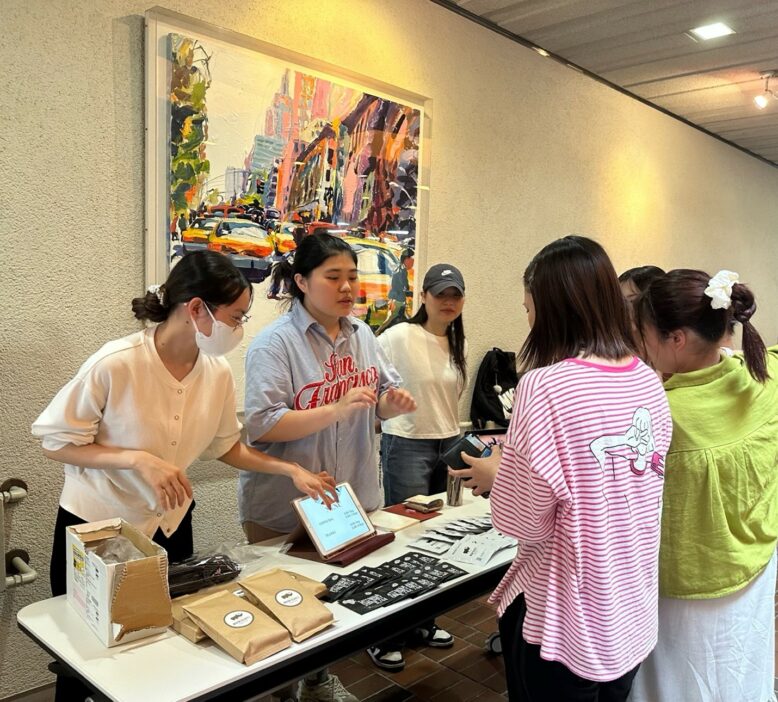
Impact and Outcome:
Although it was only open for sale for 3 days and the lunchtime was only 40 minutes a day, the support of the school and the humanitarian significance of the project drew many students as well as professors and staff to participate. Despite the limited selling time, the tea and coffee sold out faster than anticipated, exceeding the project members’ expectations. Feedback on the products was overwhelmingly positive, with customers praising the fragrant aroma and well-balanced flavors. Some customers were so impressed that they returned to buy more.
One of the students commented: “The coffee was so good that I wanted to buy more so I decided to come back the next day.” Another professor, who really loves drinking coffee and when she knew about the purpose of the project, she bought almost all the remaining coffee.
In addition to the sales, the project’s message about supporting children in Malawi was effectively spread through student-created posters, videos, leaflets, and a dedicated SNS account initiated by the students. These helped to reach a broader audience, allowing the students to share updates, success stories, and the importance of the cause with a wider community.
The project’s success surpassed all expectations, and all proceeds were sent to support meals for children in Malawi through the NPO Seibo.
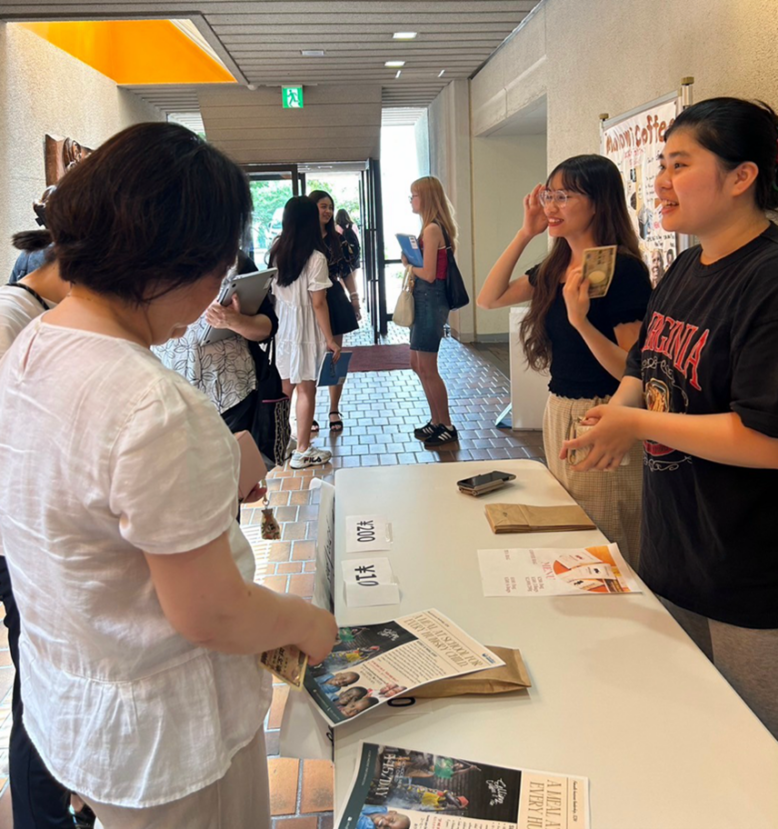
Last person bought the coffee after learning about the project’s noble cause of supporting meals for children in Malawi.
Conclusion:
This initiative not only highlighted the humanitarian impact of such projects but also demonstrated the power of student engagement and community support in making a difference. The students’ dedication and hard work paid off, resulting in a meaningful contribution to a worthy cause while providing them with valuable hands-on experience in business leadership. Thanks to everyone and the NPO Seibo.
*All the photos have been used with the permission of the Female Business Leadership class of 2024 and Professor Kaori Hakone.


